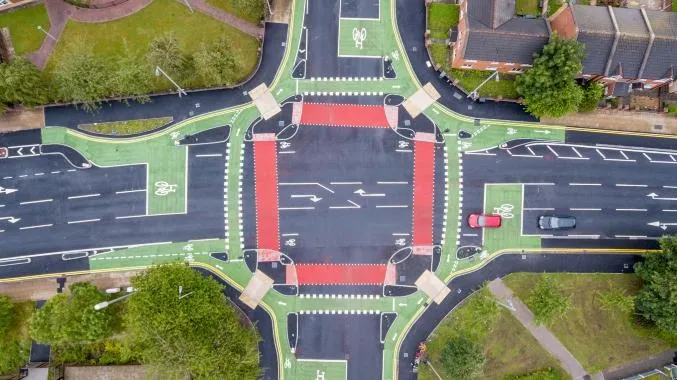Virgin Hyperloop One (VHO) has launched its passenger application demo, powered by Here Technologies (Here), at the Consumer Electronics Show 2018. The app aims to provide an end-to-end passenger experience by enabling users to book and pay for a journey as well as other modes of transportation, including public, private and ride-shares. The Hyperloop first-generation pod was also unveiled.
Through Here’s Mobile Software Development Kit for Business, the application is said to offer detailed location, mapping and navigation capabilities for 136 countries, public transit information for over 1,300 cities, and 3D indoor and venue maps.
The solution offers turn-by-turn indoor walking directions to help passengers negotiate large transit centres, venues, shopping centres and airports. In addition, users can customize their travel preferences by choosing route example options such as the fastest, cheapest, and greenest.
VHO’s XP-1 pod, combined with its proprietary electric motor, is designed to reach autonomous high-speed propulsion and levitation in a controlled low-pressure environment. This first-design passenger and cargo pod achieved record speeds of 240mph during its phase three testing.
Rob Lloyd, CEO of VHO, said: “We’re giving the public a taste of what a Virgin Hyperloop One experience will be like by publicly unveiling our pod and demonstrating how passengers will experience booking a hyperloop trip from their pocket. Every hardware and software milestone brings us closer to commercializing hyperloop.”
Virgin Hyperloop One unveils end-to-end app and test pod at CES 2018
Virgin Hyperloop One (VHO) has launched its passenger application demo, powered by Here Technologies (Here), at the Consumer Electronics Show 2018. The app aims to provide an end-to-end passenger experience by enabling users to book and pay for a journey as well as other modes of transportation, including public, private and ride-shares. The Hyperloop first-generation pod was also unveiled. Through Here’s Mobile Software Development Kit for Business, the application is said to offer detailed location,
January 9, 2018
Read time: 2 mins







